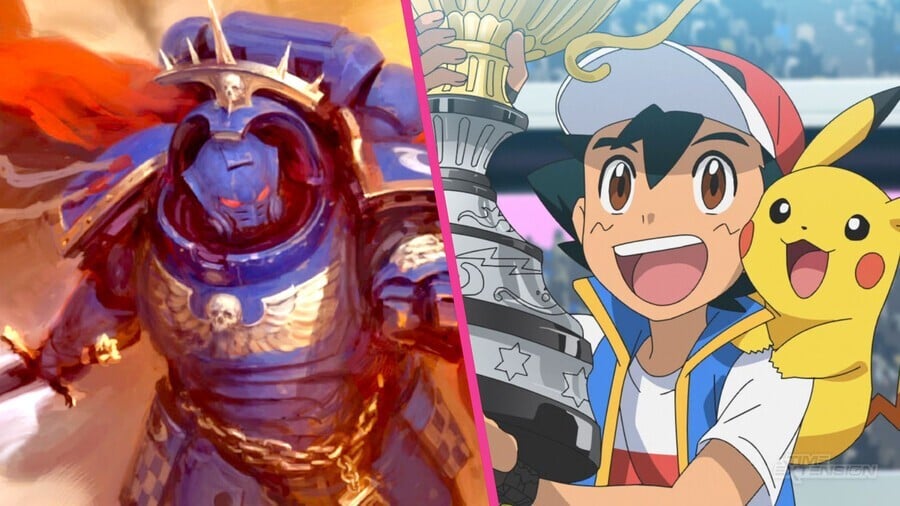
If there are two brands in the world you'd assume would never be in direct competition with one another, it's Pokémon and Warhammer.
The former is a franchise about collecting and battling with a host of cute monsters, while the other is a series of D&D-style fantasy tabletop games which feature complex rules and DIY figures.
However, according to former Games Workshop CEO Chris Prentice, Pokémon caused the company quite a bit of grief when it broke onto the scene in a big way at the end of the '90s.
Speaking to our chums over at Eurogamer, Prentice explains:
In probably May-June 2000 we made a profit warning, and we included the game known as 'the p-word' in that profit warning, saying that basically Pokémon had hit our UK business - and our UK retail business in particular - quite hard and that was going to cause a gap in our profitability for the year. Just to give you a sense of the scale: by March/April time, we were suffering a thirty percent decline in our UK retail stores - a really significant downturn.
This is my take on why it had an impact. My view was our UK retail chain, which at the time was probably approaching a hundred stores, had been aggressively chasing like-for-like growth, and the way in which they'd been doing that was to dumb down what we saw as a more sophisticated hobby - involving modelling, painting, gaming - probably for teenage boys and teenagers upwards. And in order to keep that like-for-like growth going, our UK management at the time, I feel, had been dumbing it down a little bit and bringing in a lot of younger customers.
Now that looked great in the numbers because they were spending money, but I don't think they were ever truly engaged with the depths of the hobby that we'd created. So when Pokémon came along [in] early 2000, it was a shiny new thing for the nine, ten, eleven-year-olds, maybe even the twelve-year-olds - the ones that were pre-teen and therefore weren't necessarily fully engaged with our hobby. And they just stopped coming to our stores.
Prentice feels that the situation was one of Games Workshop's design, as it had been aggressively chasing younger players to expand its consumer base – and when something else came along to tempt those younger players away, it saw a drop in revenue.
While it wasn't a life-threatening situation for the company, Prentice admits it did cause Games Workshop to change its strategy:
It was a wake-up call to remind us what we really did for a living. And what we had to do was reinvigorate ourselves and make the stores a more attractive place for more experienced gamers.
Both Pokémon and Games Workshop have gone on to bigger and better things since then, anyway. Pokémon sales generated $11.6 billion (£9.1 billion) in licensing and merchandise profit in 2022, while Games Workshop's core operating profit increased from £131.7m in 2022 to £148.2m in 2023.
